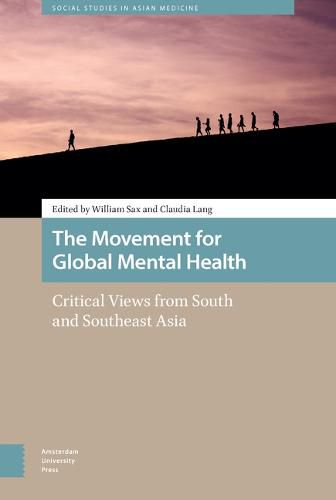Readings Newsletter
Become a Readings Member to make your shopping experience even easier.
Sign in or sign up for free!
You’re not far away from qualifying for FREE standard shipping within Australia
You’ve qualified for FREE standard shipping within Australia
The cart is loading…






In The Movement for Global Mental Health: Critical Views from South and Southeast Asia, prominent anthropologists, public health physicians, and psychiatrists respond sympathetically but critically to the Movement for Global Mental Health (MGMH). They question some of its fundamental assumptions: the idea that mental disorders can clearly be identified; that they are primarily of biological origin; that the world is currently facing an epidemic of them; that the most appropriate treatments for them normally involve psycho-pharmaceutical drugs; and that local or indigenous therapies are of little interest or importance for treating them. The contributors argue that, on the contrary, defining mental disorders is difficult and culturally variable; that social and biographical factors are often important causes of them; that the epidemic of mental disorders may be an effect of new ways of measuring them; and that the countries of South and Southeast Asia have abundant, though non-psychiatric, resources for dealing with them. In short, they advocate a thoroughgoing mental health pluralism.
$9.00 standard shipping within Australia
FREE standard shipping within Australia for orders over $100.00
Express & International shipping calculated at checkout
In The Movement for Global Mental Health: Critical Views from South and Southeast Asia, prominent anthropologists, public health physicians, and psychiatrists respond sympathetically but critically to the Movement for Global Mental Health (MGMH). They question some of its fundamental assumptions: the idea that mental disorders can clearly be identified; that they are primarily of biological origin; that the world is currently facing an epidemic of them; that the most appropriate treatments for them normally involve psycho-pharmaceutical drugs; and that local or indigenous therapies are of little interest or importance for treating them. The contributors argue that, on the contrary, defining mental disorders is difficult and culturally variable; that social and biographical factors are often important causes of them; that the epidemic of mental disorders may be an effect of new ways of measuring them; and that the countries of South and Southeast Asia have abundant, though non-psychiatric, resources for dealing with them. In short, they advocate a thoroughgoing mental health pluralism.